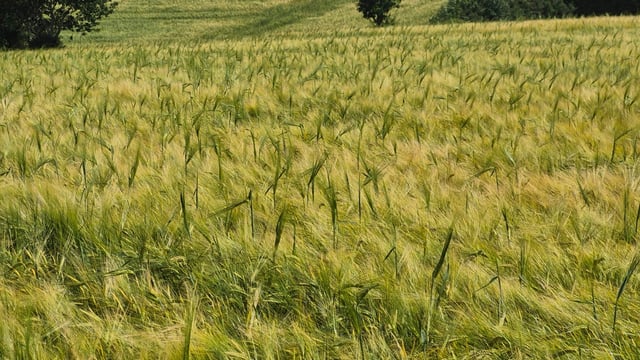Irish agri-food sector facing 'very significant uncertainty' - ICOS
The Irish Co-operative Organisation Society (ICOS) today (Friday, July 25) warned that farmers are facing increased "income volatility" because of inflationary pressures and the potential fallout from US tariffs.
According to Edward Carr, ICOS president, the Irish agri-food sector in general is facing "very significant uncertainty" both at farm and processing level.
He believes this is because of a combination of factors from the threat posed by geopolitical and trade risks to complex regulatory issues "surrounding the future of Ireland’s nitrates derogation" and potentially very serious cuts to the future Common Agricultural Policy (CAP) budget.
Carr said despite the challenges of Brexit, the Covid-19 pandemic and the Ukraine War, the Irish agri-food sector "continues to demonstrate significant resilience and innovation".
However ICOS is calling on the government to acknowledge the current threats that the sector faces and address these in Budget 2026.
ICOS
According to the ICOS president the agri-food sector "remains Ireland’s largest indigenous industry, employing 6.1% of the total workforce".
Analysis by the organisation suggests every €1 of exports of dairy goods, "represents a 90 cent spend within the Irish economy".
ICOS has highlighted this is in contrast to every €1 exported by multinational companies which "represents a 10 cent spend within the Irish economy.”
In its 2026 Pre-Budget Submission ICOS has set out a range of specific measures which it believes would "address the priority issues" now facing the agri-sector and family farms.
One of the most important measures it is calling for is the need for an income stability measure for the farming and the dairy sector - which the government committed to in last year's budget.
"In simple terms, the volatility measure supported by ICOS, would enable a farmer to use periods, when market returns are higher, to create a modest rainy-day fund to support them during future periods when market returns are weaker," Carr said.
ICOS is also looking for measures in Budget 2026 that would:
- Support the competitiveness of the sector and the grass-based model;
- Support the retention of Ireland’s nitrates derogation;
- Support generational renewal and succession in the sector;
- Address the increasing levels of TB;
- Develop the bioeconomy based on co-operative principles;
- Promote Ireland’s farmer owned and controlled co-operative business sector.
Separately ICOS has also voiced its concerns over the Carbon Border Adjustment Mechanism (CBAM) tax on fertiliser to the government.
Carr said that the proposal "is essentially a tax on food production that must be prevented" and that fertiliser should be removed from the CBAM tax from January 1, 2026.
He is calling on the government to engage with the European Commission on the issue.





